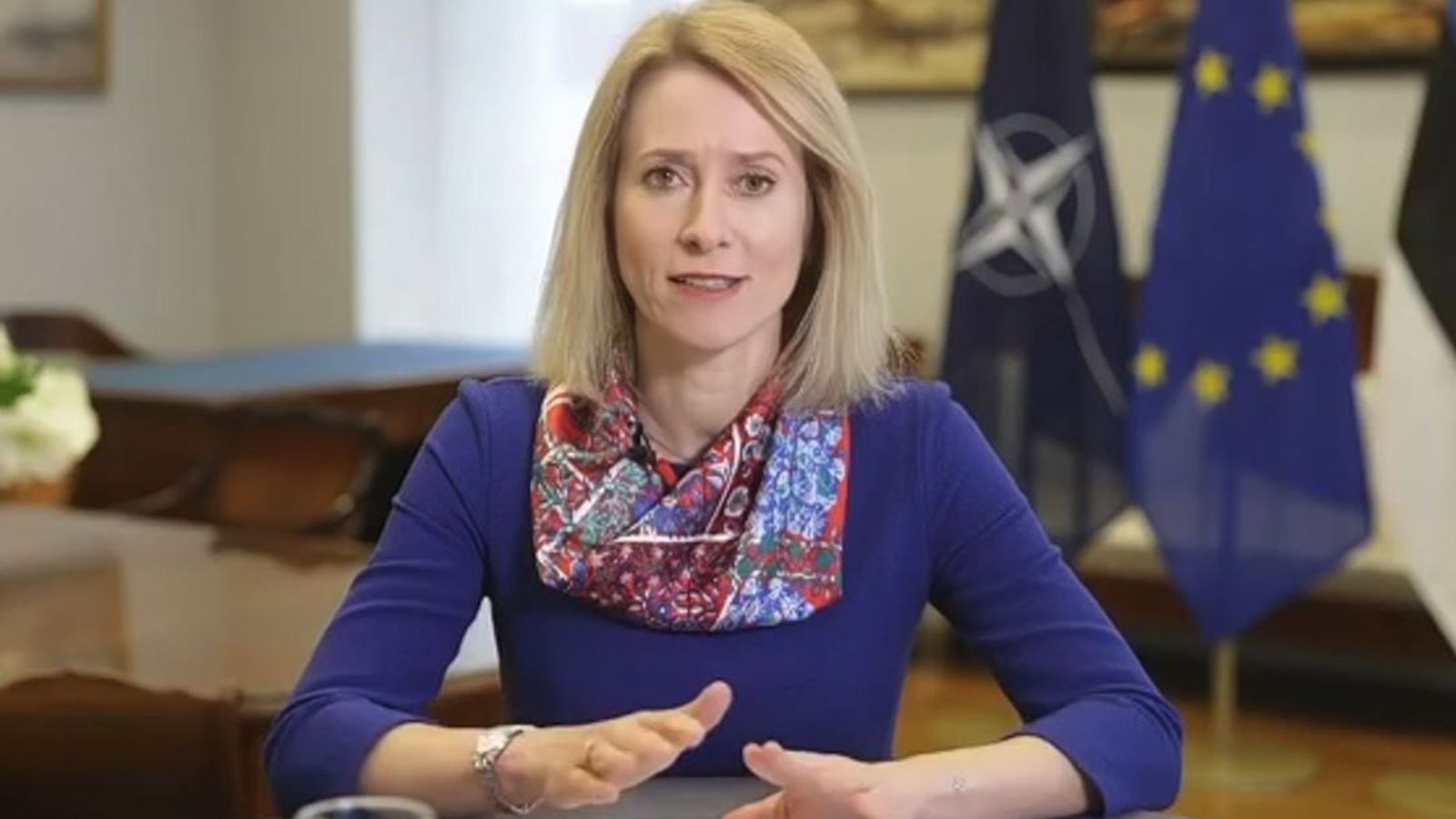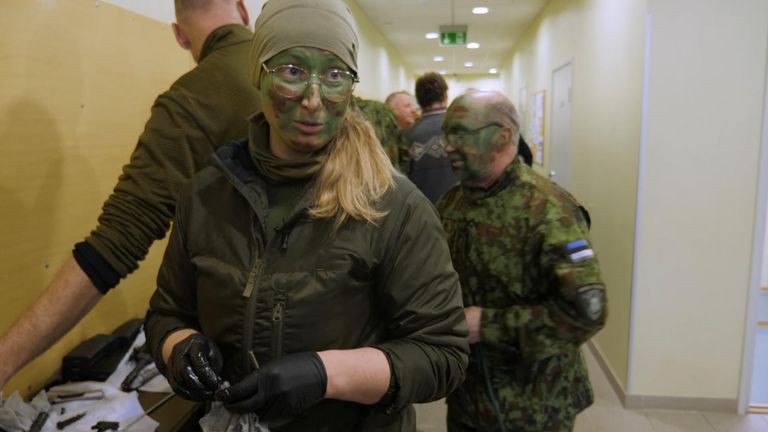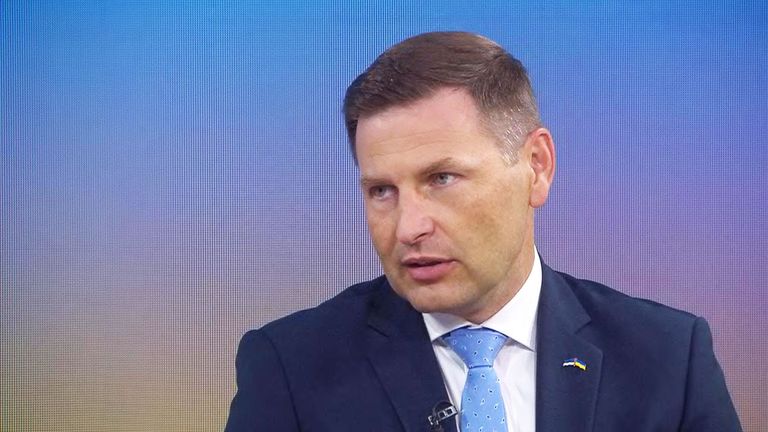Western leaders “shouldn’t be afraid” to stand up to Russia and “shouldn’t be afraid of own power,” Estonia’s prime minister has told Sky News.
Kaja Kallas, whose country borders northwestern Russia, said everything should be considered when it comes to how the West supports Ukraine’s war effort.
She said: “Russia is saying this or that step is escalation, but defence is not escalation. I’m saying we should have all options on the table. What more can we do to help Ukraine win?”
Ukraine-Russia war latest: Navalny’s body ‘abused’ after death
The Estonian prime minister was speaking to Sky for Wednesday’s The World with Yalda Hakim, and after French President Emmanuel Macron was heavily criticised for suggesting Western troops could be sent into Ukraine to help repel the threat of Russia.
The UK, the US and Germany were all quick to say their militaries would not join President Volodymyr Zelenskyy’s armed forces on the ground in Ukraine.
Asked if she was worried, in light of the death of Russian opposition leader Alexei Navalny, that her strong words might make her a target for Vladimir Putin’s regime herself, Ms Kallas, who became prime minister in 2021, said she wouldn’t be fazed and called allies to ignore Moscow’s provocations.
She said: “Russia wants to intimidate us. This is how they operate. They want to make me or Estonia afraid and to make us refrain from the decisions that we would otherwise make to be advocates for supporting Ukraine, the Western unity, everything that really annoys them a great deal.
“But I think the response to it is that we shouldn’t be afraid, and we shouldn’t refrain from the decisions that we would otherwise make, because this is how terrorists operate. They want us to be afraid. And the only response is that we are not afraid. We act on what is right.”
The Baltic state, a former Soviet republic, has been a member of NATO since 2004, when it joined the alliance, along with Bulgaria, Latvia, Lithuania, Romania, Slovakia, and Slovenia.
If Russia were to attack, its 30 NATO partners are bound to come to Estonia’s defence.
Despite the security membership provides, Ms Kallas said Donald Trump’s criticism of NATO spending was a “fair critique” and urged all members to do their share.
“What the aggressor or autocrats are provoked by is weakness. So, you take up the war if you think you can win and… only when you think you are stronger.
“So, if we give out signals that we are not doing enough for our defence, we are not taking this seriously enough, it might provoke the aggressor to take a further step. And that’s why I have advocated for investing more than [the NATO target] 2% of our GDP to defence.
Read more on Sky News:
From no-go city to tourist hotspot in 26 days
Wake up to Russian threat, Estonians tell West
“Estonia is doing 3.2% of our GDP, but not all the countries are doing so. I was really surprised, I thought that when the war started in Ukraine two years ago, it would have been a wake-up call to all the European countries to do more, to spend more on defence, [but] in 2023, it was 11 countries that spent over 2%. And I don’t really understand why.”
She said it would never have happened during the Cold War.
“In 1988, all the NATO countries spent more than 2% because the threat was real. There was a Cold War. Now there’s a hot war going on in Europe. And still, not everybody is taking it seriously enough.”


